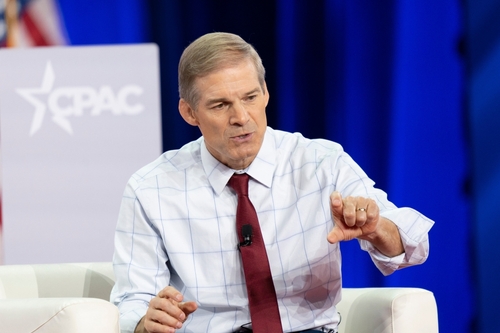Grover Norquist’s insights on recent oil price surges reveal much about the power of effective policies and their long-term impacts, despite temporary geopolitical upheavals.
At a Glance
- Grover Norquist analyzes the oil price surge due to Israel’s military moves in Iran.
- Norquist credits Trump-era policies for continued market stability.
- He advocates for extending Trump’s 2017 tax cuts to protect families from financial shocks.
- Tariffs and potential tax cut expirations could negate economic gains.
Norquist’s Key Observations
During a Newsmax interview, Norquist dissected the complexity of fluctuating oil prices triggered by Israel’s intervention in Iran. This geopolitical tension led to an immediate rise in oil costs, a classic example of how regional conflicts ripple through global markets. However, Norquist projected calm, stating that these price surges were transient. His confidence stems from former President Trump’s strategic policies, which laid the groundwork for market resilience despite such disruptions.
These effective policies, particularly the 2017 Tax Cuts and Jobs Act, offer a safety net against long-term economic instability. While there is concern about potential expiration, Norquist emphasizes that proper policy extensions could safeguard against financial turbulence. The interplay between tariffs and tax cuts remains critical; indeed, many argue that new tariffs alone could reverse the benefits of Trump’s tax reforms, leading to significant consumer losses.
Implications of Tariffs and Tax Policies
The Trump administration’s tariffs and the looming potential expiry of the TCJA could alter American financial landscapes dramatically. According to estimates, a median family’s finances might shrink by $1,000 annually if the TCJA sunsets— this would be apart from the daunting tariff-related losses averaging $3,800 per household as noted by Yale Budget Lab. The economic seesaw is stark, especially when considering the potential for a total 22% increase in taxes if Trump’s 2017 cuts go unextended.
‘”IT’D BE A REAL SHOCK PER FAMILY, PER PERSON TO SEE IN REAL LIFE,”‘ – AMERICANS FOR TAX REFORM PRESIDENT GROVER NORQUIST.
Republican lawmakers are engaging in a fierce tug-of-war to ensure these tax cuts persist. Such a move represents more than partisan maneuvering; it’s an effort to prevent additional economic burdens on American families. Norquist remains optimistic about congressional Republicans’ ability to sustain these pivotal policies, though key congressional figures, like Senate Majority Leader John Thune, have yet to publicize their stance, further complicating the landscape.
Conclusion: A Call for Policy Continuity
Maintaining market stability amidst geopolitical upheavals and economic policy shifts calls for strategic foresight rooted heavily in the informed policymaking of prior administrations. Norquist’s insights spotlight these dynamics clearly, urging vigilance and action to thwart potential fiscal dilemmas. As the narrative unfolds, extending tax cuts emerges as not just a policy preference but a practical necessity to shield families from financial shocks in these tumultuous times.
‘If the tax cuts expire, the median family would lose about $1,000,’ – Kimberly Clausing.
Norquist’s stance highlights how ongoing efforts are needed to navigate the geopolitical-economic labyrinth effectively. Consequently, extending Trump’s 2017 tax cuts isn’t merely a fiscal consideration but a necessary measure for economic security amidst unpredictable global affairs.






